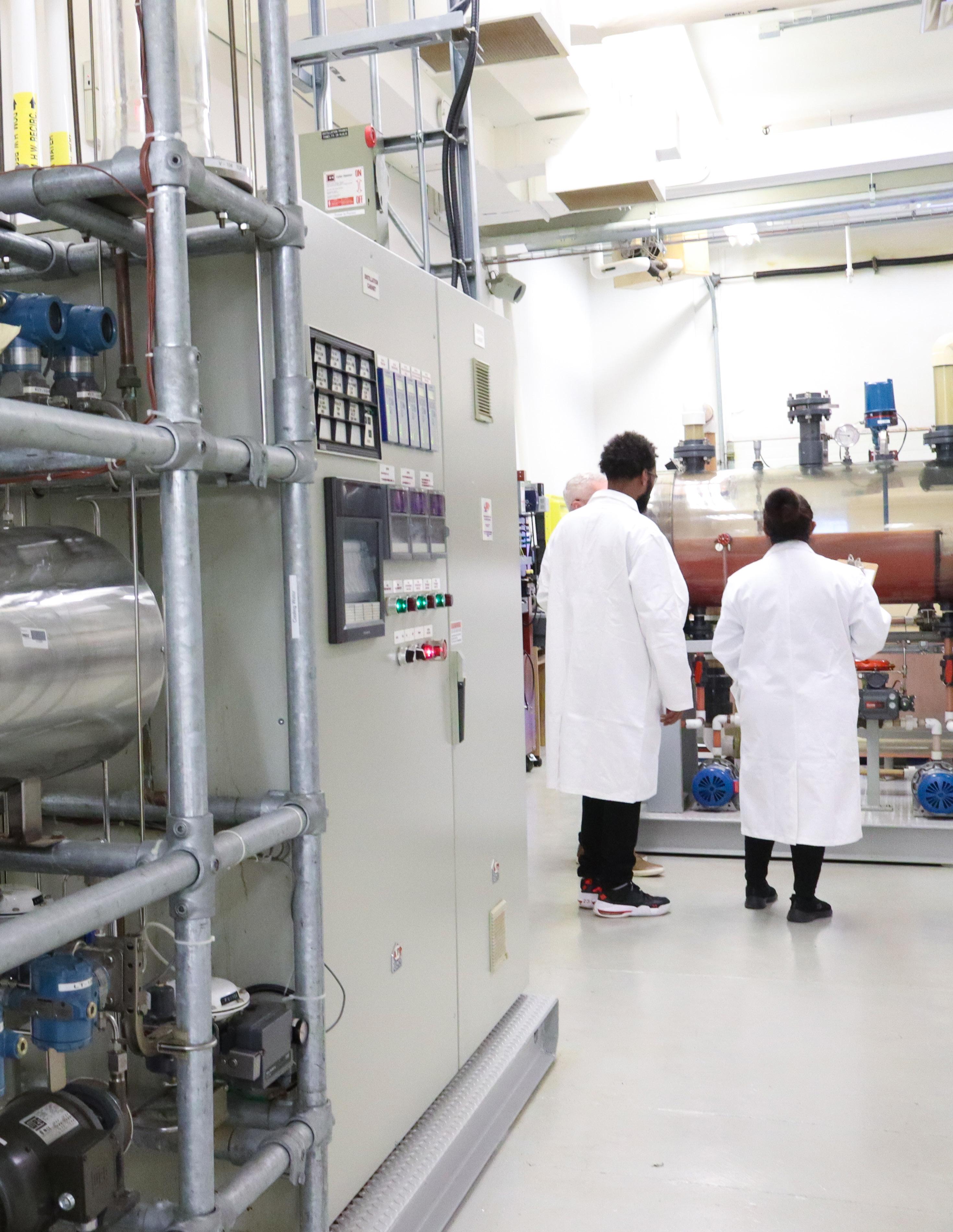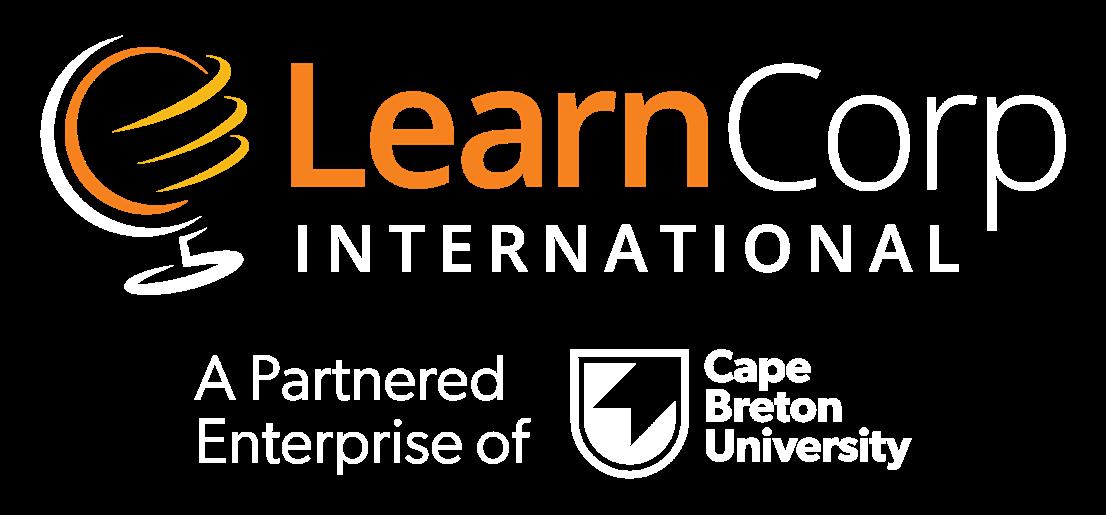

Strategic Plan
– 2028




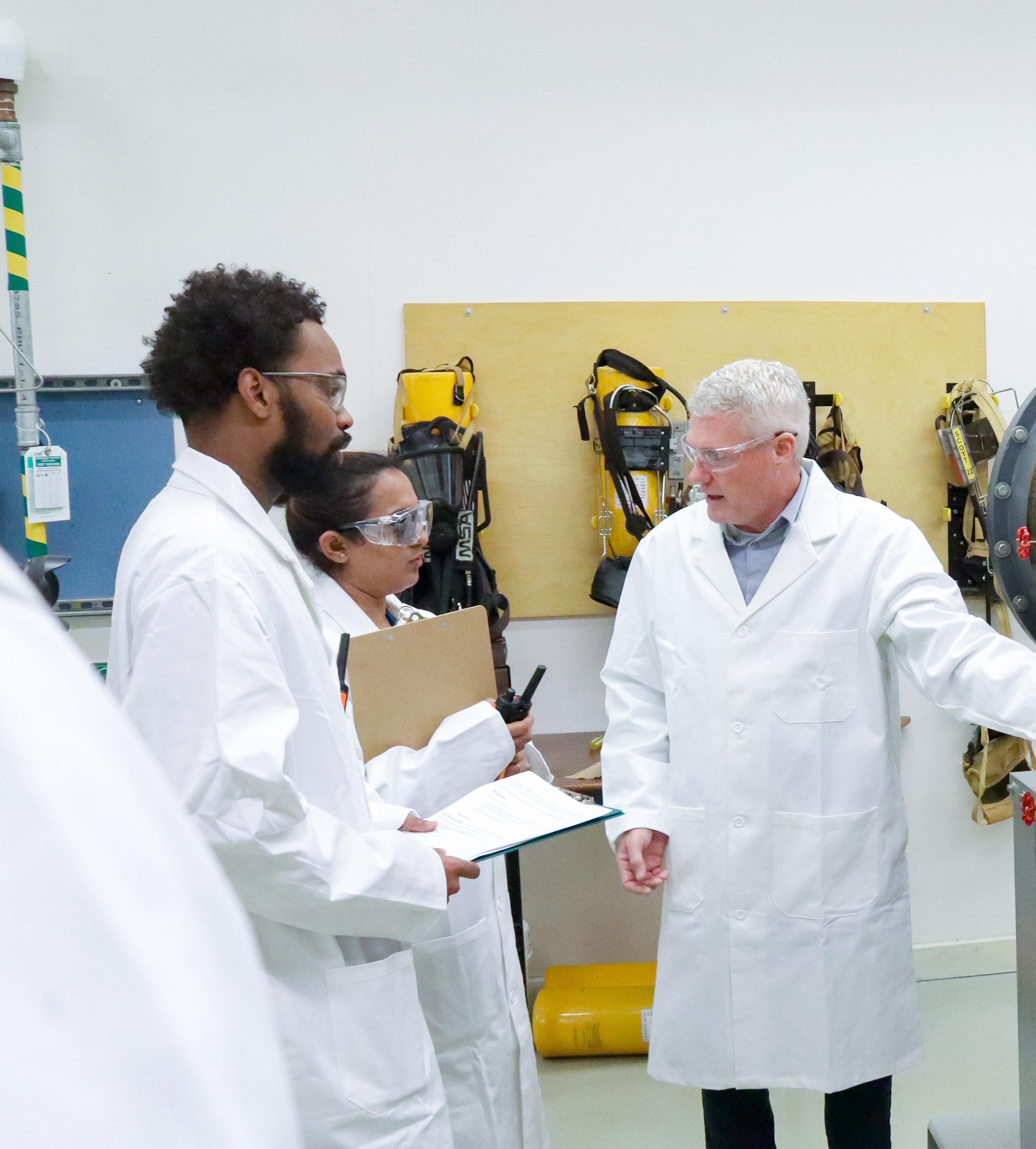
EXECUTIVE SUMMARY
LearnCorp International (LCI) is strategically navigating a period of significant growth and opportunity within the dynamic global energy sector. This document presents LCI's strategic plan for 2025-2028, a comprehensive blueprint designed to leverage recent successes and capitalize on future potential. This strategic plan, developed through a rigorous process involving detailed review of internal documents, board reports, financial history, organizational structure, and extensive stakeholder engagement, outlines four key pillars for capacity building and sustained organizational excellence.
LCI's
strategic direction is founded upon four core pillars:
Financial Growth and Strategic Reinvestment
Ensuring robust financial health through optimized revenue generation and targeted reinvestment in technology, infrastructure, and human capital.
Cultivating a Culture of Excellence
Fostering an internal environment characterized by employee engagement, open communication, accountability, adaptability, and innovation.
Product Innovation and World-Class Program Delivery
Modernizing and enhancing training programs to meet the evolving demands of the energy sector, including the potential implementation of micro-credentials and certifications in collaboration with strategic partners like Cape Breton University.


Strengthening Customer and Strategic Partnerships
Expanding and deepening relationships with key industry players, diversifying the client base, and securing long-term strategic alliances.
This plan is designed to enhance LCI's capacity to deliver innovative and customized training solutions that elevate safety, technical knowledge, and operational excellence. Recognizing the current reliance on a key client, ExxonMobil, LCI is committed to diversifying its client base and exploring emerging markets such as Guyana and Mozambique. The plan also emphasizes the adoption of advanced technologies, including Learning Management Systems (LMS), and the development of a new process lab to enhance hands-on training capabilities.
With a strong financial foundation, evidenced by substantial total net income and retained earnings, LCI is well-positioned to implement this strategic plan. It is important that the Board of Directors fully supports these strategic changes and acknowledges that the leadership team brings a renewed vision and energy to drive LCI forward. By focusing on these four strategic pillars and maintaining a commitment to continuous improvement and a culture of excellence, LCI is poised to solidify its position as an industry-leading provider of technical training, transforming the way individuals learn and work in the energy sector.

The Process
LearnCorp International's (LCI) 2025-2028 strategic plan was developed through a thorough and collaborative process. This included a detailed review of financial records, historical reports, and operational data to understand LCI's current position and capabilities. Key stakeholders, including senior management and the CEO, were engaged in structured meetings to gather diverse perspectives. A comprehensive SWOT analysis was conducted to identify strengths, weaknesses, opportunities, and threats, informing the strategic direction.
The process involved refining mission and vision statements and defining four strategic pillars, each with specific Key Performance Indicators (KPIs) to evaluate progress. Feedback was incorporated throughout multiple iterations, resulting in a data-driven and stakeholder-aligned plan. This ensures the strategic plan is practical, relevant, and positioned for successful implementation.
Highlights & Achievements
STRONG FINANCIAL PERFORMANCE
LCI has generated significant total net income and retained earnings, demonstrating financial stability and profitability.
ESTABLISHED CLIENT RELATIONSHIPS
A key relationship with ExxonMobil provides a reliable revenue stream and validates LCI's industry standing.
EXTENSIVE STRATEGIC PARTNERSHIPS
LCI has developed a broad network of partnerships with educational institutions, training providers, and industry organizations.
PROJECT PIPELINE
A steady flow of committed projects indicates healthy demand and financial predictability.
BRANDING & MARKETING EFFORTS
Branding initiatives are underway to increase visibility and position LCI as a leader in energy training.
ORGANIZATIONAL GROWTH
Hiring and onboarding are in progress to meet project commitments, and LCI aims to offer competitive compensation packages.
STUDENT EXPERIENCE
LCI provides an enriched learning experience beyond the classroom, including excursions and character-building opportunities.
UPCOMING PROJECTS & EXPANSION OPPORTUNITIES
LCI has several upcoming projects, including the Guyana Technical Training College Inc (GTTCI) and various training program developments, indicating potential for further growth.


Current Programming & Business Model Breakdown
CORE BUSINESS AREAS:
Operations & Maintenance Training Program (O&M Training)
Greater Guyana Initiative (GGI) - TVET & Safety Programs
Exxon Mobil GMOT (Global Manufacturing & Operations Training) Projects
UPCOMING PROJECTS & EXPANSION OPPORTUNITIES
Guyana Technical Training College Inc (GTTCI) Leveraging CBU connection and cobranding in Guyana
GTTCI Equipment Procurement
Leveraging & Expanding Strategic Partnerships with organizations like NAPTA, Systran, Spartan Training & Performance and the Canadian Safety
Offshore Safety Officer Training Program
Guyana Ministry of Labour & Occupational Safety & Health Department
PLC Systems Training Program Development and Delivery


COMPANY OVERVIEW
LearnCorp International (LCI) is a prominent provider of comprehensive training solutions, specializing in curriculum development, delivery, consulting services, and gap assessments. LCI integrates principles of safety, technical precision, and collaborative teamwork into its operations and training programs. The organization distinguishes itself through its responsive approach and advanced learning methodologies, designed to actively engage and mentor learners. LCI places significant value on strategic partnerships, continually seeking opportunities to enhance and optimize the development and delivery of its services to clients within the global energy sector.
OUR LEARNING SOLUTION DESIGN, STRUCTURE AND EXPERTISE
Strategy Learning Solution Design Delivery Mechanism
Understanding the learner goals and organizational objectives
Energy & Science FOUNDATION
Energy & Science ADVANCED Energy & Science BASIC
Faculty Specific TRAINING
Short Courses & Seminars
Curriculum Development
Assessment Services Training Program Management
Competency and Skills Management
Optimum client experience and outcome


ORGANIZATIONAL CHART

Vacant Vice President

Sean Richards Training Project Manager

Phil Doody President &
CEO
Anne O’Neill Manager of Innovation and Education Technology




Donnie Joyce Director of Finance & Admin
Tom Mercer Electrical and Process Control

Calum MacPhee OH&S Training Coordinator


Dan Meagher Senior Training Advisor
Angela Polegatto Accounting Clerk
Noel Vaninetti Mechanical

Brenna MacDonald Project Support Coordinator
Trevor Boone Operations

Arlene MacKinnon Document Controls


FINANCIAL HISTORY
Net Income to Date: $8,085,823.00
Retained Earnings: $2,986,445.00 Note amounts noted are inclusive up to 2024.
LearnCorp International: Revenue & Income Review (2004 - Present Day)
AVERAGE ANNUAL REVENUE, NET INCOME, AND DIVIDEND 2004-2024
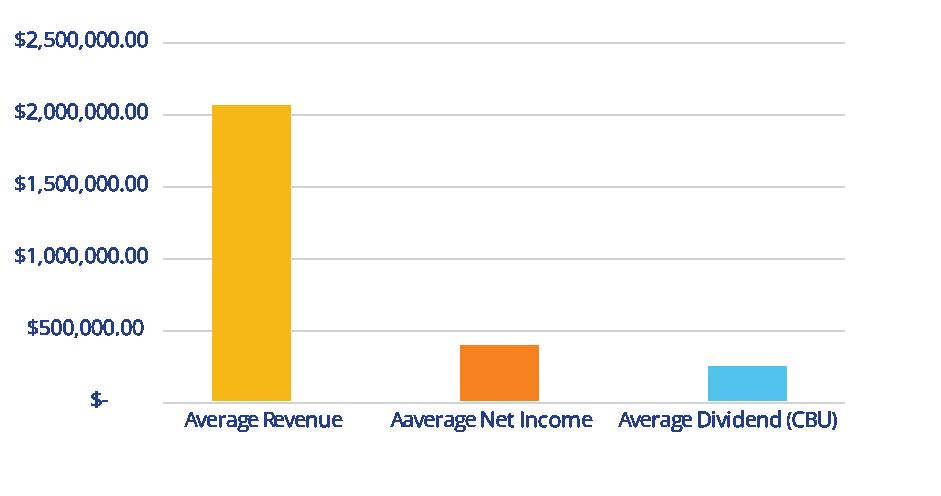
REVENUE, INCOME & DIVIDENDS 2004-2025
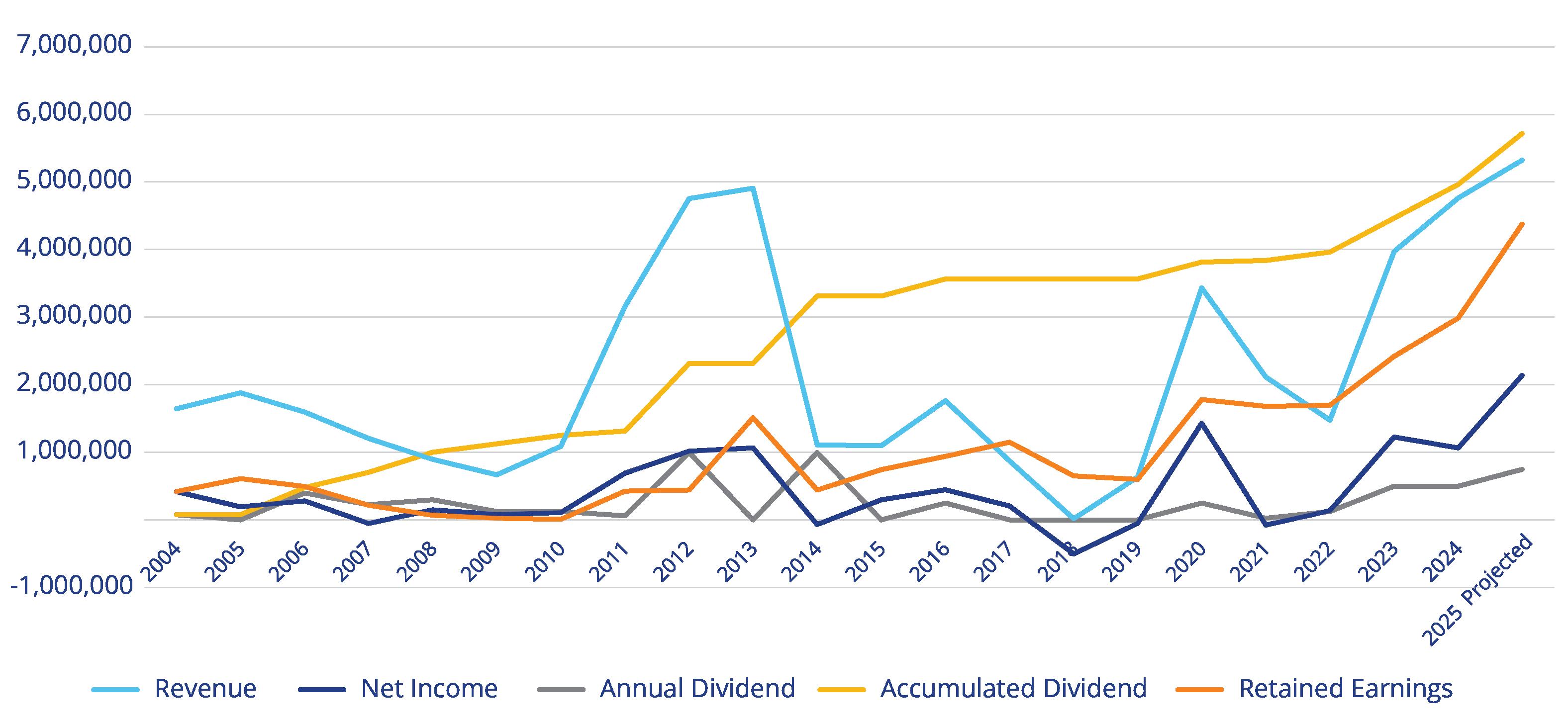

REVENUE, INCOME & DIVIDENDS 2020-2025
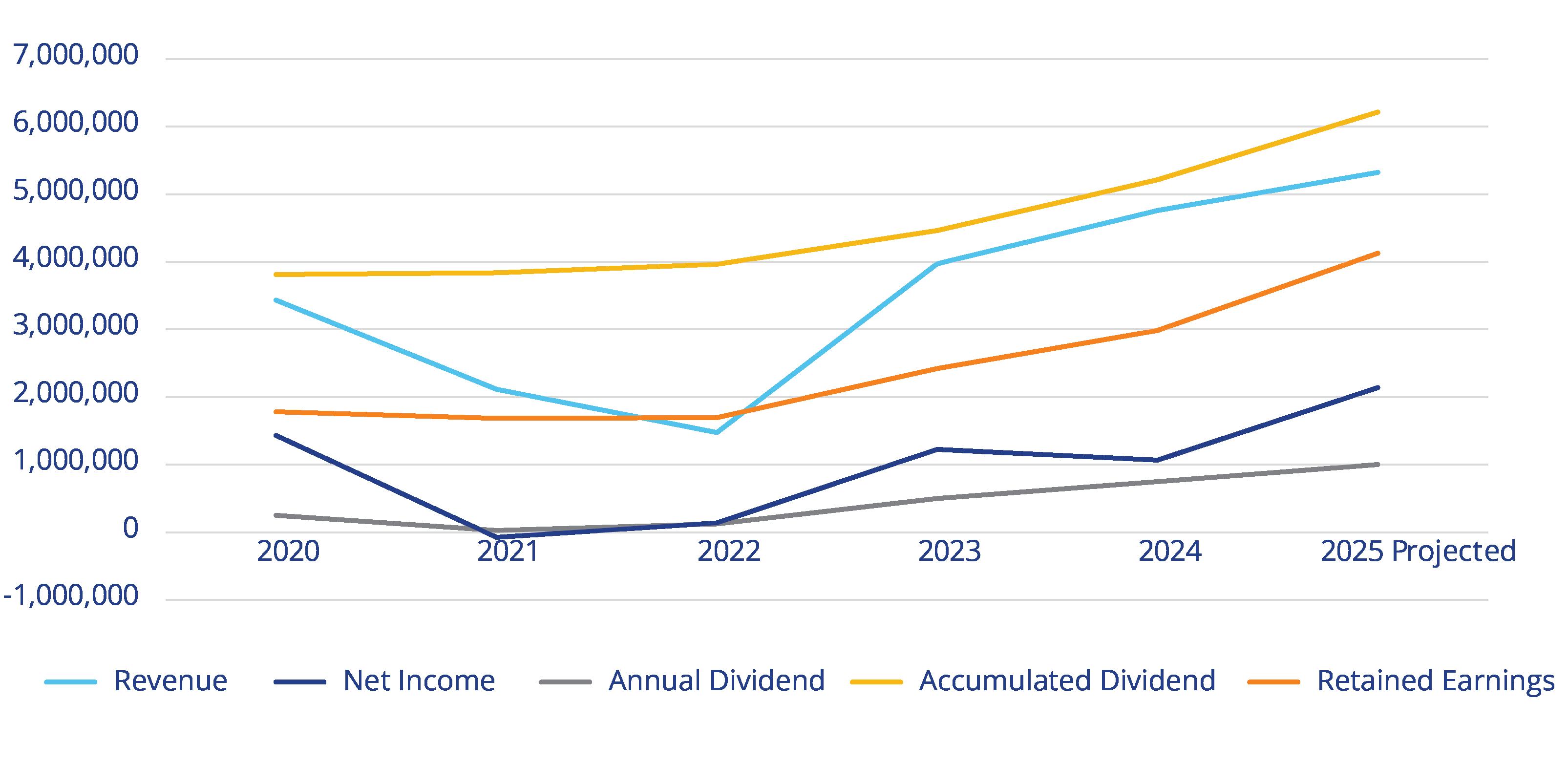
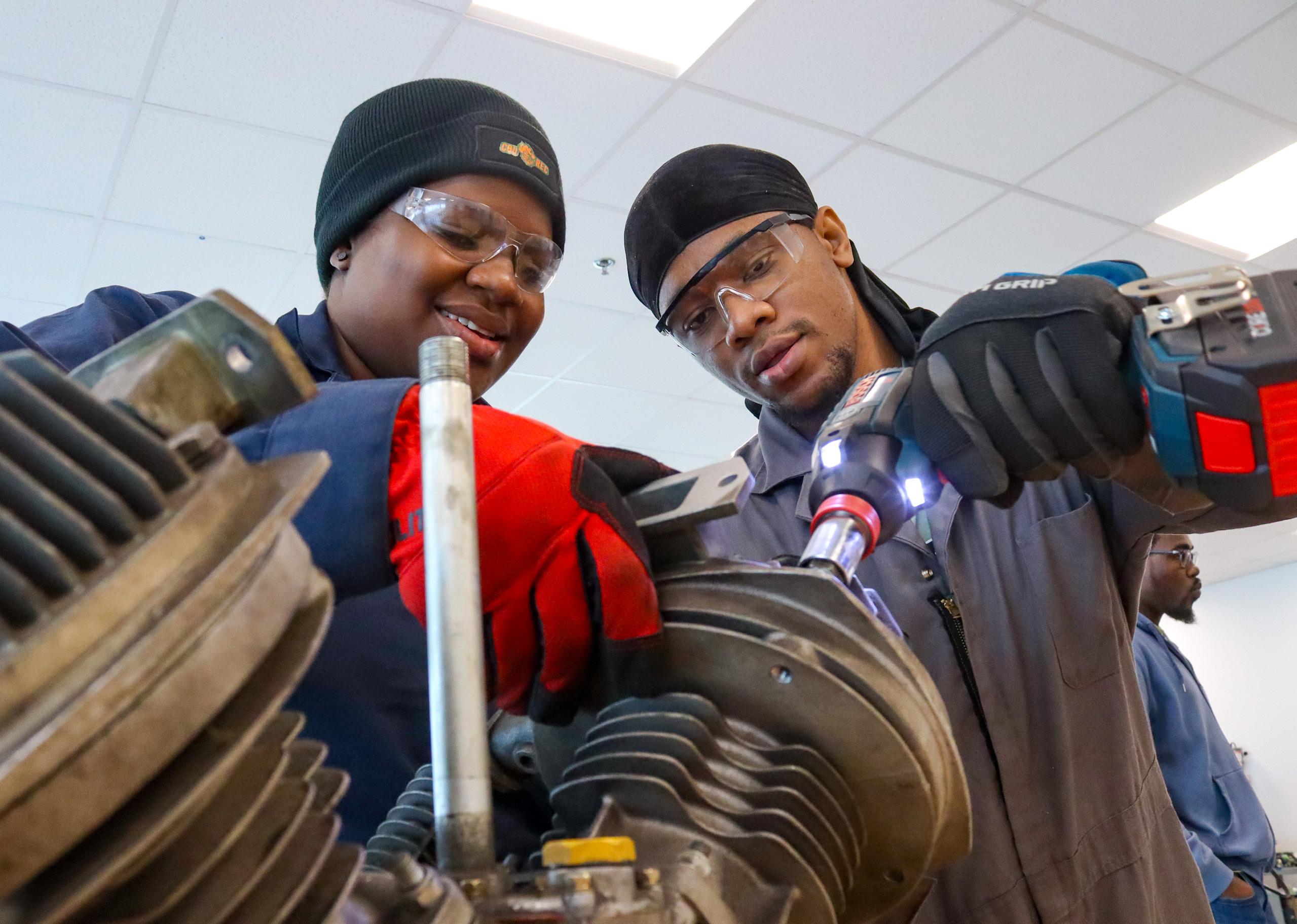
STRATEGIC PARTNERS
LCI has built an extensive network of industry partners who support LCI in elevating program delivery and expanding their curriculum to meet the evolving needs of the global energy sector.
Strategic Partner Partnership Details
Cape Breton University
Nova Scotia Community College
Maritime Environmental Training Institute
TSC Simulation
North American Process Technology Alliance
Canadian Safety Institute
Spartan Training Performance
Systran Inc
Funding Agencies
Third Party Consultants
Cape Breton University (CBU) offers various technical training programs, with opportunities for partnerships to offer Microcredentials, Certificates and Diplomas with LCI. LCI is also located on CBU Campus and works closely with departments throughout the university.
NSCC works closely with industry partners to develop customized technical training programs that meet specific needs.
The Maritime Environmental Training Institute (METI) is a private career college offering certified environmental and safety training solutions to industries across Canada.
TSC Simulation provides expert services in dynamic process simulation, process plant training, virtual control room (VCR) technology, and engineering studies for verification, validation, and optimization.
NAPTA sets the standards for the PTEC curriculum, auditing and endorsing qualifying programs in North America, with several colleges having received this endorsement.
The Canadian Safety Institute is accredited to conduct and deliver NEBOSH certification training.
Spartan Training Performance draws on the extensive experience of military veterans who specialize in the implementation and delivery of leadership and high-performance operations (HOP) training programs.
Systran Inc offers both virtual and hands-on training modalities to meet diverse learning needs.
Funding Agencies like the Atlantic Canada Opportunities Agency (ACOA) aims to boost economic growth in Atlantic Canada by supporting business competitiveness, innovation, and productivity, fostering community economic development, and promoting the region's strengths.
Various third-party consultants that offer subject expertise, including marketing, business development and technical training.

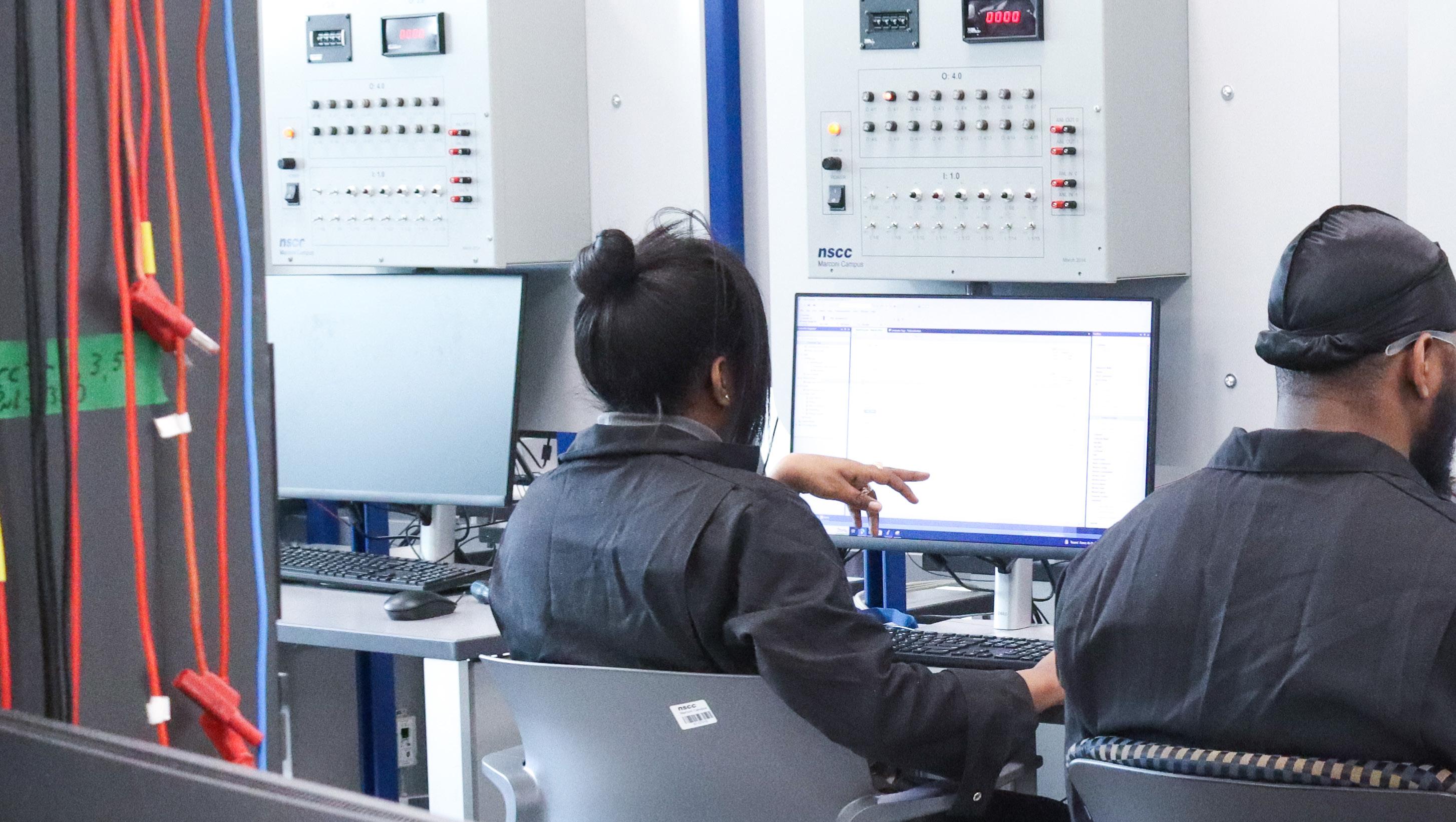
COMPETITOR OVERVIEW
Organization
OPITO
RelyOn Nutec
Industry VS Students Location
Industry & Student International
Student(s) International & Partnering Locations
The Competency Alliance (TCA) Industry & Student North America
3t EnerMech
Schlumburger NExT
NAIT
SAIT
Red Deer Polytechnic
Ascending Mozambique
Industry & Student International
Industry & Student International
Student(s) Canada (AB)
Student(s) Canada (AB)
Student(s) Canada (AB)
Industry International
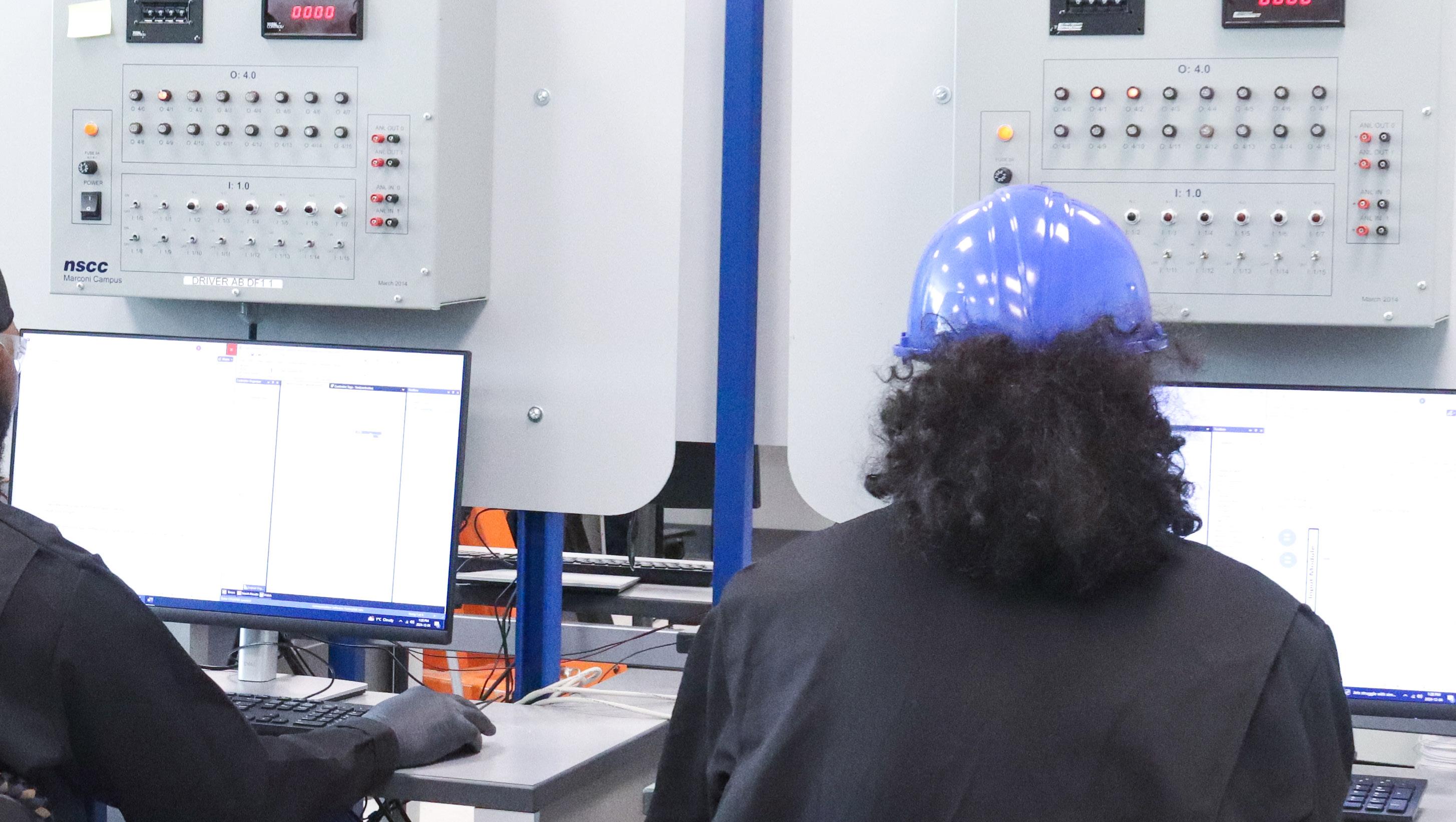
MISSION AND VISION
Current Mission Statement:
To create high quality, innovative training solutions that engages and inspires learners, staff, partners, and clients for energy projects throughout the world.
New Mission Statement:
To deliver innovative and customized training solutions that enhances safety, skills, technical knowledge and operational excellence throughout the global energy sector.
Current Vision Statement:
LCI strives to exceed industry expectations in workforce development initiatives. Through the creation of innovative learning environments, the LCI team challenges learners technically and logically, and provides opportunities to develop the skills required in today’s demanding energy industry. To this end, LCI will continue to identify and promote new training methods and expand the items in their training toolbox.
New Vision Statement:
As an industry-leading provider of technical training, we transform the way people learn and work in the energy sector.

SWOT ANALYSIS
STRENGTHS
Strategic Partnerships:
• Strong relationships with colleges, universities, and industry consultants support program delivery and business development.
• These partnerships enhance LCI’s reputation and open doors within the industry.
Industry Relationships:
• A key relationship with ExxonMobil not only ensures a reliable revenue stream but also validates the LCI's industry standing and reliability.
• A well-established client like ExxonMobil not only provides stable income but also opens doors to additional projects and collaborations.
Project Pipeline:
• A steady flow of committed projects indicates healthy demand and provides financial predictability.
• A robust pipeline supports expansion and continuous operational activity.
Leadership & Governance:
• The Board of Directors is in full support of strategic changes, ensuring that long-term growth.
• The leadership team brings a new energy and vision to LCI.
WEAKNESSES
Workforce Limitations:
• An aging workforce, coupled with pockets of complacency, poses a significant risk to our capacity for innovation and adaptability, potentially hindering future growth.
• The potential misalignment of some instructors' methodologies and knowledge with current and emerging industry standards poses a risk to training quality and relevance.
Technology Gaps:
• Current pace of technology integration is insufficient, limiting efficiency improvements and potentially hindering the evolution of our training programs.
Organizational Growth:
• Hiring and onboarding is in process to sustain pace and meet commitments for existing project pipeline.
• LCI offers competitive compensation packages, which gives an edge in attracting talent.
Branding & Marketing:
• Branding efforts are underway to increase visibility and position LCI as a leader in energy training.
Financial Stability:
• Sufficient funds allow for strategic investments in technology, training improvements, and overall growth initiatives.
Industry Experience:
• Extensive sector experience builds trust and provides a competitive edge, though there is a need to update some areas of expertise to keep pace with current trends.
• Knowledge in safety training make the organization a trusted provider, particularly in sectors where safety is critical.
Student experience:
• LCI provides an enriched learning experience beyond the classroom, taking students on excursions and giving the opportunity to build character through new experiences.
Knowledge Transfer and Delegation Structure:
• Critical organizational knowledge is currently concentrated among a small group of individuals, which limits the ability to scale knowledge across the team and onboard new hires effectively.
• This structural limitation presents challenges with delegation, creates operational bottlenecks, and increases the risk of overextension and burnout among key personnel.
Institutional Support Challenges:
• Cape Breton University has been passively involved in LCI and can play a more integral role in program certifications, which will be mutually beneficial.
Administrative Burden:
• A shortage of dedicated executive and administrative personnel can lead to inefficiencies and distract leadership from strategic priorities.
Training Quality and Operational Gaps:
• Variability in course delivery affect overall training quality.
• Institutional knowledge is held by a few, limiting the spread of best practices.
OPPORTUNITIES
Partnership Expansion:
• Expand collaborations with post-secondary institutions like CBU and other key institutions to improve curriculum development.
Technology Adoption:
• Invest in advanced Learning Management Systems (LMS), interactive learning tools, and online training platforms to streamline internal processes and enhance course delivery.
Market Expansion:
• Explore opportunities in emerging markets such as Guyana and Mozambique and consider establishing new campus locations and/or course delivery to reach a broader client base.
• Reduce dependency on a single client by targeting new strategic partners and projects.
Training Innovations:
• Invest in a new process lab at Marconi Campus to offer state-of-the-art, hands-on training that differentiates LCI from competitors.
Cultural Transformation:
• Build and reinforce a culture of excellence that embraces continuous improvement, innovation, and accountability.
Business Development:
• Expand marketing efforts to support business development efforts and reinforcing LCI’s position as a leader in energy training.
THREATS
Client Dependency:
• Heavy reliance on ExxonMobil poses a risk; any reduction in projects or change in vendor strategy could significantly impact revenue.
Absence of Proprietary Programs:
• Without unique or proprietary training programs, it may be challenging to stand out in a competitive market.
International Challenges:
• Operating in developing countries may be challenged by poor infrastructure, which affects remote training capabilities and logistical support.
Cultural Resistance:
• Resistance to change, whether in adopting new technologies or modernizing practices, can slow down progress and limit LCI’s ability to innovate.

STRATEGIC PILLARS
The strategic pillars of Financial Stability, People and Culture, Product Innovation, and Customer Partnerships are foundational to LearnCorp International's (LCI) strategic trajectory from 2025 to 2028. These pillars provide a clear, actionable framework for organizational growth and development. By focusing on strategic investments, cultivating a culture of excellence, delivering world-class programs, and strengthening key partnerships, LCI will address identified weaknesses, capitalize on emerging opportunities, and achieve its vision of industry leadership. These pillars are intrinsically linked to Key Performance Indicators (KPIs), which provide the foundation for developing more refined and measurable KPIs for future strategic planning.
Mission Statement
To deliver innovative and customized training solutions that enhances safety, skills, technical knowledge and operational excellence throughout the global energy sector.
Invest For Future Growth
Make smart investments to ensure LCI’s stability into the future.
Build an Internal Culture of Excellence
Foster a culture of increased employee engagement through a commitment to communication, accountability, adaptability and innovation.
Ensure Course Delivery is World Class
Modernize and enhance training programs to improve engagement and scalability.
Strengthen Industry Partnerships
Cultivate, establish, and foster new and existing business alliances and strategic partnerships to secure long-term success.
Financial
1. Manage cashflow to re-invest strategically into LCI.
2. Determine strategies to expand business opportunities in/with Mozambique.
3. Optimize revenue per trainer.
4. Forecast financials every 6 months.
People
1. Improve onboarding processes to ensure knowledge transfer and cultural alignment.
2. Implement a cross-training program to ensure consistency and reduce knowledge gaps.
3. Commit to growth & development of team members to support continued growth and adaptation of LCI.
4. Ensure key roles are filled to create operational efficiencies and opportunities for excellence.
Product
1. Standardize course delivery to ensure consistency and quality.
2. Invest in interactive training tools. Is this the same as 4? should they be combined? Integrate LMS into course delivery.
3. Strengthen partnership with CBU to grant micro-credentials, certificates and/or diplomas to LCI graduates.
4. Develop process lab at Marconi Campus.
5. Recruit and onboard new instructors ahead of the GTTCI transition.
Vision Statement
As an industry-leading provider of technical training, we transform the way people learn and work in the energy sector.
Customer
1. Expand brand positioning to reflect LCI’s standards for program delivery.
2. Strengthen Relationships with Key Exxon Executives.
3. Build Relationships with newer Exxon leaders to ensure a strong future relationship.

4. Conduct Annual or Bi-Annual audits with Exxon Partners to identify areas for improvement and areas worth promoting excellence.
5. LCI to attend key conferences and trade shows in its target markets, e.g., the Offshore Technology Conference (OTC) to build and strengthen strategic partnerships.
TACTICS
Financial
Year 1
Tactics
Complete an audit on existing pricing model and research industry best practices
Create a Master Services Agreement (MSA) to reflect rates for each country/project location.
Year 2
Tactics
Conduct cross training of trainers and program facilitation to increase efficiencies and optimize revenue per trainer
Year 3 People
Complete employee engagement survey
Complete internal skills analysis
Start succession planning process
Identify key vacancies and operational gaps, build clear job descriptions and start the recruitment process
• Identify & build standards for program content and delivery methods
• Identify LMS and start content creation
• Identify in-house or external interactive training tools (best ROI value)
• Foster CBU Relationship and strengthen their understanding of the value of programming
Identify and secure funding to secure Marconi learning lab
Identify people resource needs for GTTCI transition & start recruitment process
Customer
• Develop new website & increase marketing efforts
• Identify key team members to support strategic partner relationships
• Schedule semi-annual in person connection points with Exxon executives and strategic partners
Identify & attend conferences & events that are key in business development opportunities
• Create & maintain training modules/curriculum for each program
• Conduct cross training
• Enroll team in training Initiatives that better serve the organizations future (e.g., Online learning)
Approve & initiate succession planning process Ensure key roles are filled (e.g., VP/EA)
• Continue development of LMS course content
• Work with CBU to identify opportunities to grant micro-credentials, certificates and/or diploma programs.
(Move to Year 1)
Explore funding opportunities for Process Lab.
(Move to Year 1)
Continue to ensure people resources are ready and available for GTTCI transition & ongoing management
• Attend key conferences for networking and partnership development and growth
• Develop marketing content to showcase the LCI Experience
Tactics
Evaluate forecasting effectiveness & accuracy
• Complete & implement succession planning process & reevaluate needs based on business adjustments
• Complete LMS Integration and continue to grow and develop
• Implement Micro Credential or alternative programming
• Implement Process Lab into course delivery.
• Audit and evaluate business development initiatives (i.e. revenue growth, customer/client acquisition, lead conversion rates.
Customer satisfaction, brand perception)
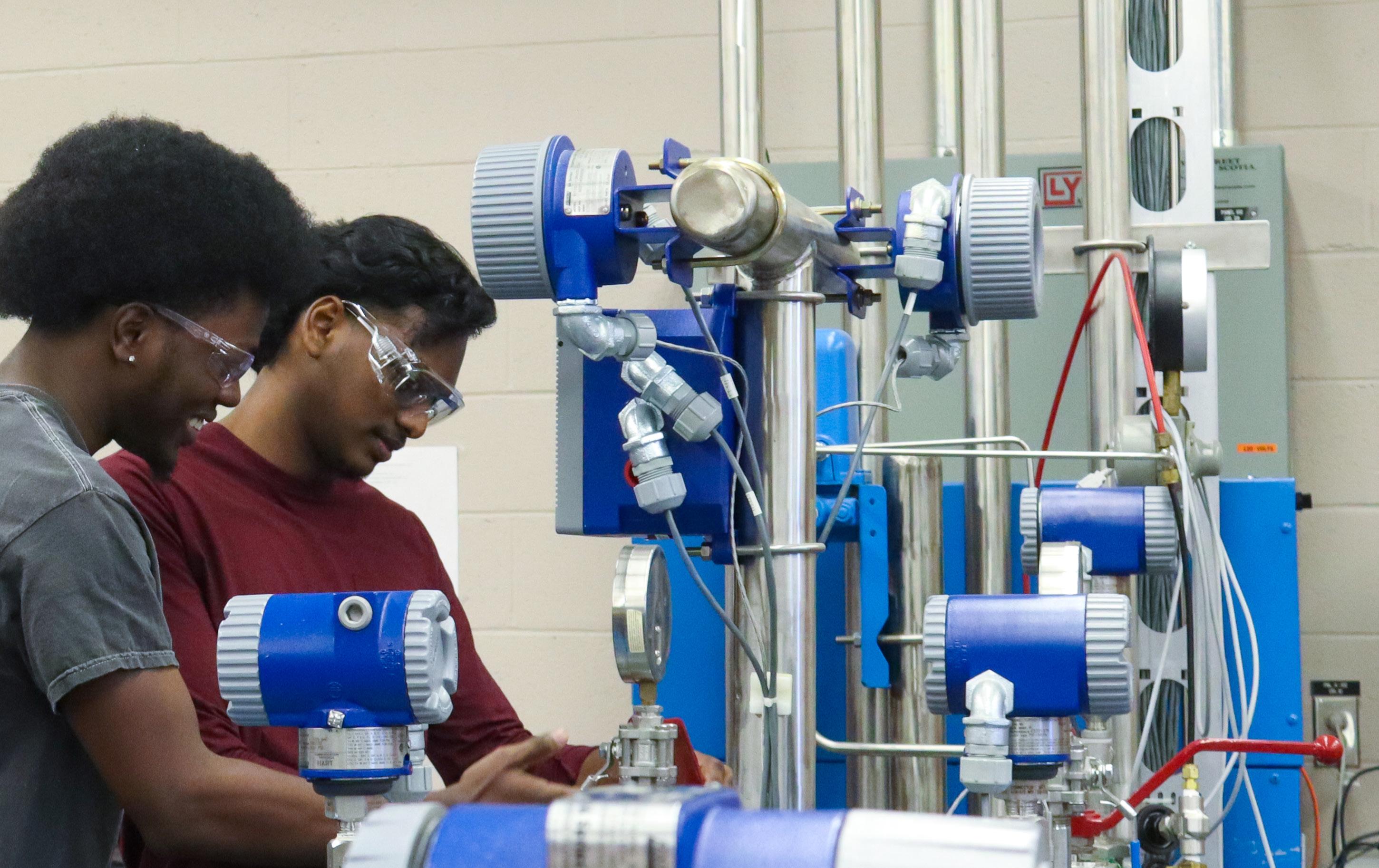

KPI’S
Establishing clear Key Performance Indicators (KPIs) and defining baseline standards is crucial for LearnCorp International (LCI) during this period of significant change and growth. KPIs provide measurable benchmarks to track progress against strategic objectives, ensuring accountability and allowing for data-driven decision-making. By establishing a baseline for KPIs and metrics over the next three years, LCI can monitor performance, identify areas for improvement, and adapt strategies as needed. The data and insights gathered during this time will create a robust foundation for more sophisticated and measurable metrics in the future, ultimately supporting LCI's sustainable growth and success as a leader in technical training.
Financial Invest For Future Growth
People
Build an Internal Culture of Excellence
Make smart investments to ensure LCI’s stability into the future.
• KPI > Prioritize Reinvestment to Drive Business Growth and Innovation.
Foster a culture of increased employee engagement through a commitment to communication, accountability, adaptability and innovation.
• KPI > Undertake an Evaluation to Define The Baseline Metrics For Employee Satisfaction.
• KPI> Implement A Three-Year Succession Planning Initiative.
Product
Ensure World Class Programs
Customer Strengthen Industry Partnerships
Modernize and enhance training programs to improve engagement and scalability.
• KPI > Advance Innovation In Training Delivery Throughout The Business.
• KPI> Evaluate & Deliver Proposal to Implement Microcredentials, Certificates and/or Diplomas with CBU.
Cultivate, establish, and foster new and existing business alliances and strategic partnerships to secure long-term success.
• KPI > Diversify The Range Of Billable Projects Across Both Existing And Potential Client Segments.

